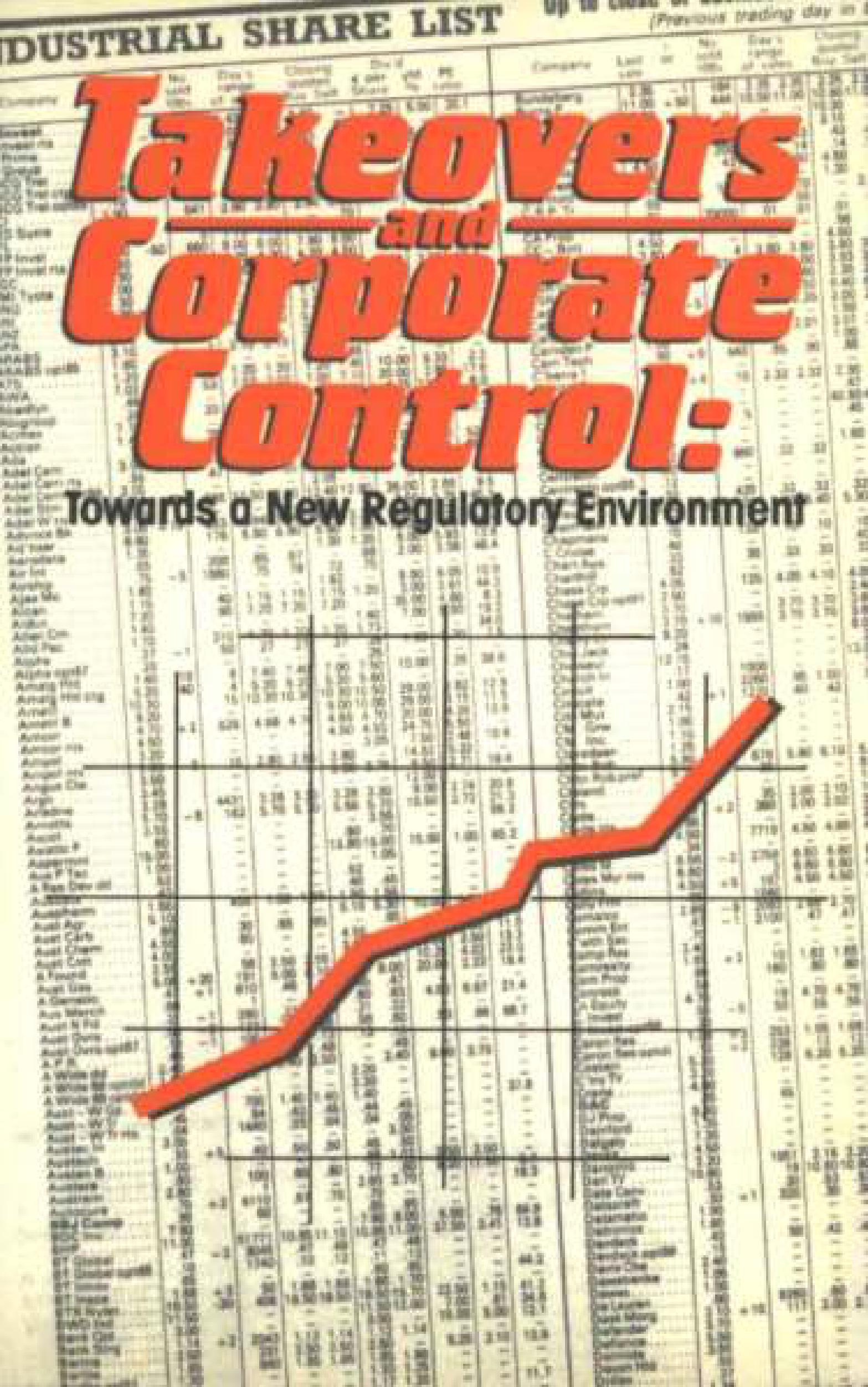
In much economic and political discourse, the word ‘market’ is used in a very general and abstract sense, meaning the organisation of activities through voluntary exchange transactions. Thus ‘the market’ is shorthand for private economic activity in general, and stands in contrast to the bureaucratic or other methods of organising production and distribution. But ‘market’ also refers to the particular places and institutions whose purpose it is to facilitate exchange. We often take these for granted, forgetting that many are the product of centuries of evolution, and that some arc more efficient than others. In recent years economists have come to devote more attention to real-world markets, attempting to understand better how they work, and to evaluate their performance.
The studies presented at the conferences reported in this volume belong to this genre. They arc concerned with the ‘market for corporate control’. The market places where transactions affecting the control of companies occur are the stock exchanges — without doubt the most highly evolved and sophisticated markets that we possess. Participants in stock and commodity exchanges are subject to numerous rules, which have been devised for the twin — and sometimes conflicting — purposes of facilitating transactions and protecting the parties to transactions. The possibilities for conflict between these desiderata seem to be particularly obtrusive in the case of takeover contests, presumably because of the all-or-nothing nature of takeovers: they are either successful or not, and in this respect are less akin to economic than to political decision making (i.e. to majority rule). In any case, one of the major policy concerns of the contributors to this volume is whether the rules governing the conduct of takeover contests are adequate and appropriate.
Another, and more fundamental, question debated at the conferences is the extent to which takeover activity is socially useful, reallocating resources in a more productive way; or whether it serves the interests, egos, and animal spirits of some members of the managerial class, and is of dubious economic benefit.
An enormous amount of empirical data has been distilled in some of the studies reported in this volume. The availability of sound factual information is indispensable to reasonable debate on these issues. But the facts are not enough — they have to be interpreted. In this connection the conference format is most useful, in that it gives scope for interpretations to be explained, challenged and elucidated.
